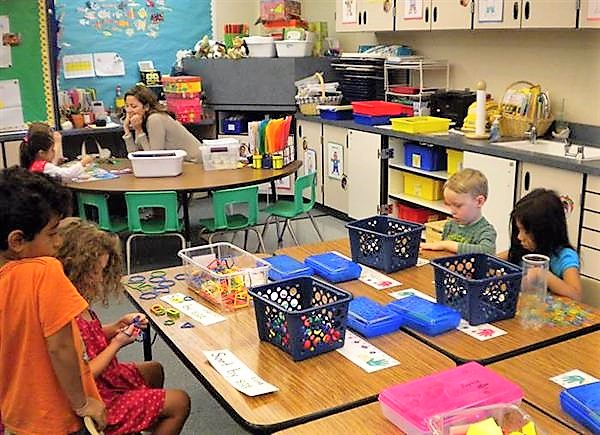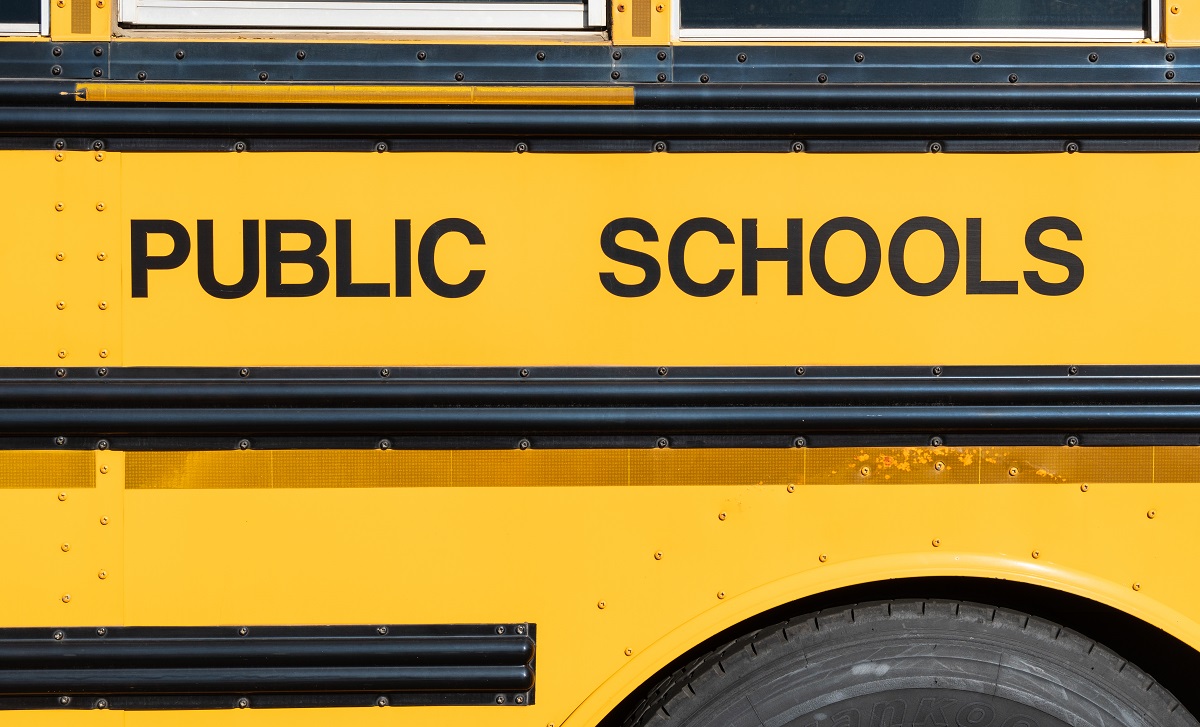California increased its early childhood education funding and enrollment in 2017–18, but fell below the national average for meeting minimum quality standards, according to “The State of Preschool 2018” annual report from the National Institute for Early Education Research.
The pre-K programs — composed of the State Preschool Program, Transitional Kindergarten, Head Start and special education — enrolled 242,297 children in 2017–18. More than 15 percent of all U.S. children in state-funded early education programs are in California, the research found.
Ranking eighth in the nation in pre-K spending, the state increased program funding by more than $364 million from 2016–17 to a total of $1.8 billion. With the boost, California spent $7,655 per child last year, compared to $6,542 in 2016–17.
California’s increased access and funding contrasts national trends, as the NIEER found many states are decreasing state spending per child and not doing enough to increase enrollment. These developments come despite increased knowledge that early childhood education programs help lay a strong foundation for a child’s emotional, social, mental and academic development.
“Nationally, we are disappointed by the lack of progress,” said NIEER founder and Senior Co-Director Steven Barnett. “California is moving in the right direction, expanding pre-K enrollment and increasing funding. But more progress is needed on meeting quality standards as well as expanded access.”
The state’s Transitional Kindergarten program fell well short of quality standards benchmarks established by the researchers. Earning a score of two out of 10, California’s TK program did not meet standards in: early learning and development standards, teacher specialized training, assistant teacher degree requirements, staff professional development, maximum class size, staff–child ratio, screening and referral services, and use of a continuous quality improvement system.
Faring better but still with room for improvement, the State Preschool Program met six of the 10 benchmarks. Researchers said a key shortcoming was that the program does not require teachers to have a bachelor’s degree, nor does it provide salary and benefit parity with grade K-3 teachers.
The NIEER’s report comes at a juncture of increased interest in early childhood education both at the state Capitol and district offices throughout the state. Gov. Gavin Newsom’s 2019–20 budget proposal calls for a significant focus in the area by providing $1.8 billion for early childhood education and childcare. The budget also includes $125 million in non-Proposition 98 General Fund money to expand the State Preschool Program by increasing access to subsidized full-day slots for low-income 4-year-olds.
For 2017–18, the NIEER ranked California 14th in the nation for pre-K access for 4-year-olds and eighth for 3-year-olds. Sixteen percent of 4-year-olds were enrolled in the State Preschool Program, while 21 percent attended Transitional Kindergarten and 7 percent were enrolled through Head Start. Meanwhile, 78 percent of 3-year-olds were not enrolled in any early childhood program (11 percent were in State Preschool and 3 percent in Head Start).
Nationally, just a third of 4-year-olds and 5.5 percent of 3-year-olds were enrolled in public pre-K programs.
About California’s programs
- State Preschool Program: Provides both part- and full-day preschool to 3- and 4-year-olds with a family income at or below 70 percent of the state median income. Children at risk of abuse, neglect or exploitation, receiving protective services, are homeless, or who are receiving CalWORKS cash aid are also eligible. Funding is awarded through an application process to school districts, private and faith-based agencies and Head Start programs.
- Transitional Kindergarten: Launched during the 2012–13 school year as a result of the kindergarten age eligibility moving from Dec. 2 to Sept. 1 (part of the state’s Kindergarten Readiness Act of 2010). TK is the first year of a two-year kindergarten program for children born between Sept. 2 and Dec. 2. In June 2015, an amendment allowed children turning 5 years old after Dec. 2 to attend TK at the beginning of the school year, at the discretion of the local educational agency.





